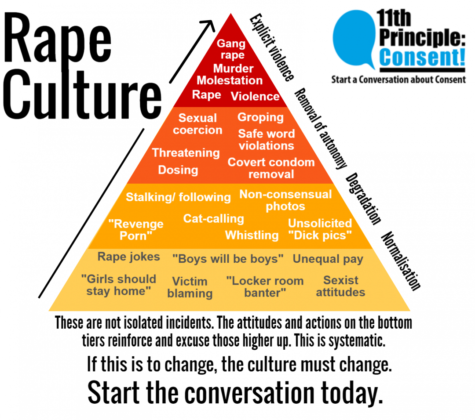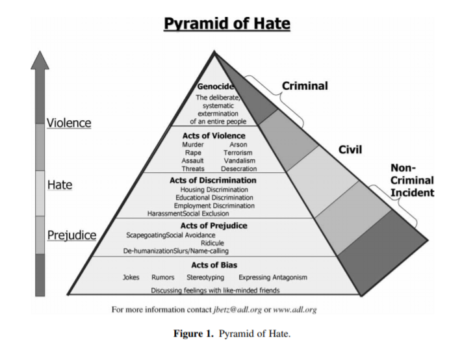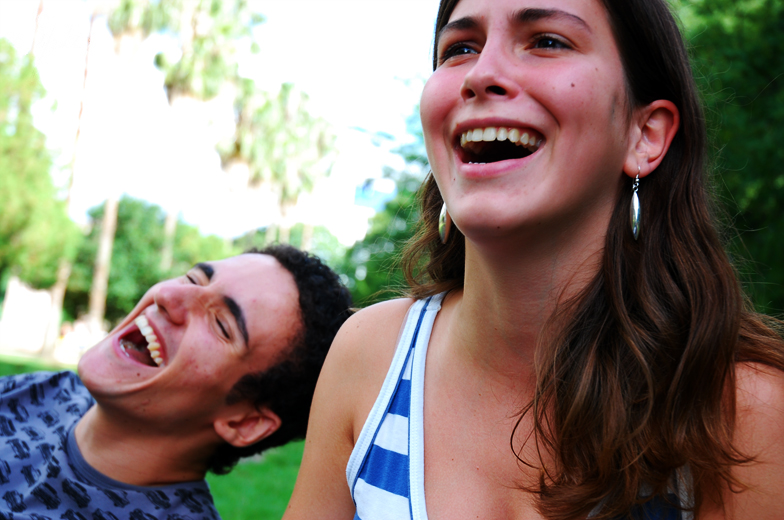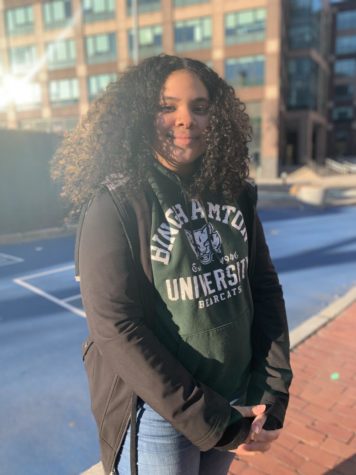Offensive Jokes: Are they okay to say?
March 21, 2019
Offensive jokes include those who make fun of things such as sexuality, race, 9/11, The Holocaust, and about oppressed groups.
From “Boondocks” to “Family Guy” to “Rick and Morty,” many offensive jokes have been aired and laughed at. However, throughout the years, the use of these jokes have held much controversy, leading “Family Guy” to stop making gay jokes.
Our sense of humor differs from one person to another. So, it is no surprise that sometimes, jokes can be taken differently than others.
“I guess it just depends on the person’s humor. Everyone in the world has a different sense of humor,” Dustin Brito, a junior, said.
Some people excuse making offensive jokes, saying they just have “dark humor.” Some say that it is outright wrong: “I don’t think you should joke about people’s sexuality because that’s something that’s part of their identity… I just don’t think it’s right,” sophomore Izabella Orozco said.
Offensive jokes aren’t simply put into matters of black and white. There are many gray areas in which they can be described as offensive or not. However, there is an agreement on which offensive jokes you can and can not say: “Don’t joke about things you can’t relate to,” Izabella said.
“You probably shouldn’t joke about actual events that are going on currently. It depends on who you’re around. If you’re around someone who gets easily offended by jokes, then you shouldn’t make them,” Nikole Rajgor, a sophomore, said.
It also depends on the people you say these jokes around and whether or not there are comfortable with them being said:
“You should just be careful with the people you make the jokes around with because some people won’t have the same sense of humor as you. So, you should always be careful. If it’s like with a close friend, then yeah, it’s fine to make those offensive jokes, but if it’s like a random person then you probably shouldn’t,” Brito said.
Offensive jokes can also be considered as inclusive and only certain people can make them. “I don’t make jokes about races that aren’t my own,” Rajgor said.
As a person grows, their humor molds into something else. Sometimes we grow to become okay with hearing certain jokes, and sometimes we don’t. Sometimes, we have said jokes that we’ve regretted and have later learned were racist, homophobic or sexist.
Rajgor scratched the surface on this idea: “As my humor progresses, sometimes I’ll like think of certain jokes I’ve made in the past and be like damn, that’s not funny.”
“If you’re joking about races that aren’t your own, sexuality.. I also don’t like it when people make autism jokes or jokes in general about special education kids. Unless you are one, then I guess you have that like authority,” Rajgor said.
Some people think, especially recently, that people who get offended by these offensive jokes are sensitive and are too “politically correct.”
Rajgor said, “Offensive jokes are offensive for a reason. People have the right to get offended if it offends them. Like, if somebody is making jokes about race and they’re not also of that race, then you have the right to be offended.”
This topic becomes tricky when you add in jokes that are subtle and although you don’t see a problem with it at first, it becomes something bigger than itself.

Offensive jokes, especially those that are discriminatory against a certain type of person, can be considered to be part of and adding to certain toxic cultures in our society today. For example, here is a diagram which takes the normalization of these jokes and relates it to explicit violence: (Rape Culture Pyramid.)
It shows how although jokes can be funny, and they can be adding to this toxic culture in our society. Normalization starts with jokes. Everyone does have their own type of humor, however, it goes deeper than jokes.
Although I can not make an assumption that every single offensive joke leads to an actual act of violence, there is a distinct link between them. Once we normalize these jokes, it becomes something we don’t see as something we need to change.
There is a more general Pyramid of Hate presented by Peace Review: A Journal of Social Justice. It shows how things such as jokes, rumors and stereotypes lead to prejudice. Once you are making jokes about things that perpetuate stereotypes and are offensive, it bases for other things to happen.

So, is it okay to make offensive jokes? It depends. There are a range of opinions on whether you can make them or not. Around different people, it is looked at differently, especially if you are around different races. There are a diversity of people in this world, primarily in New York City, and sometimes jokes can make us comfortable depending on who is around us.
At the end of the day, think before you speak.



